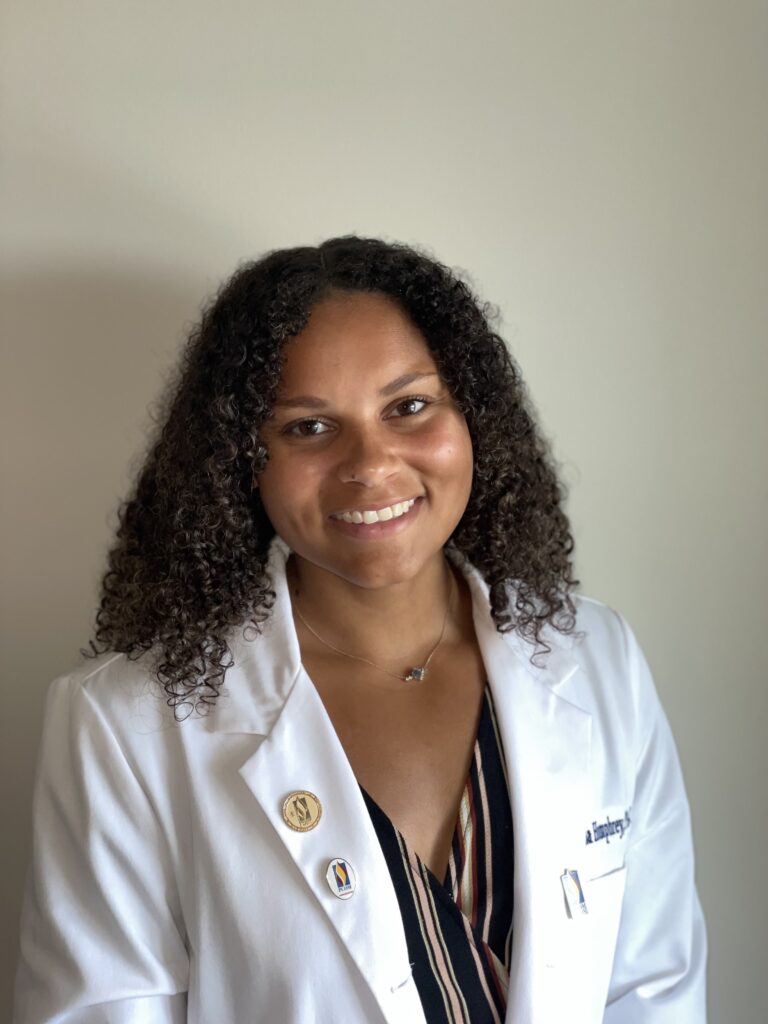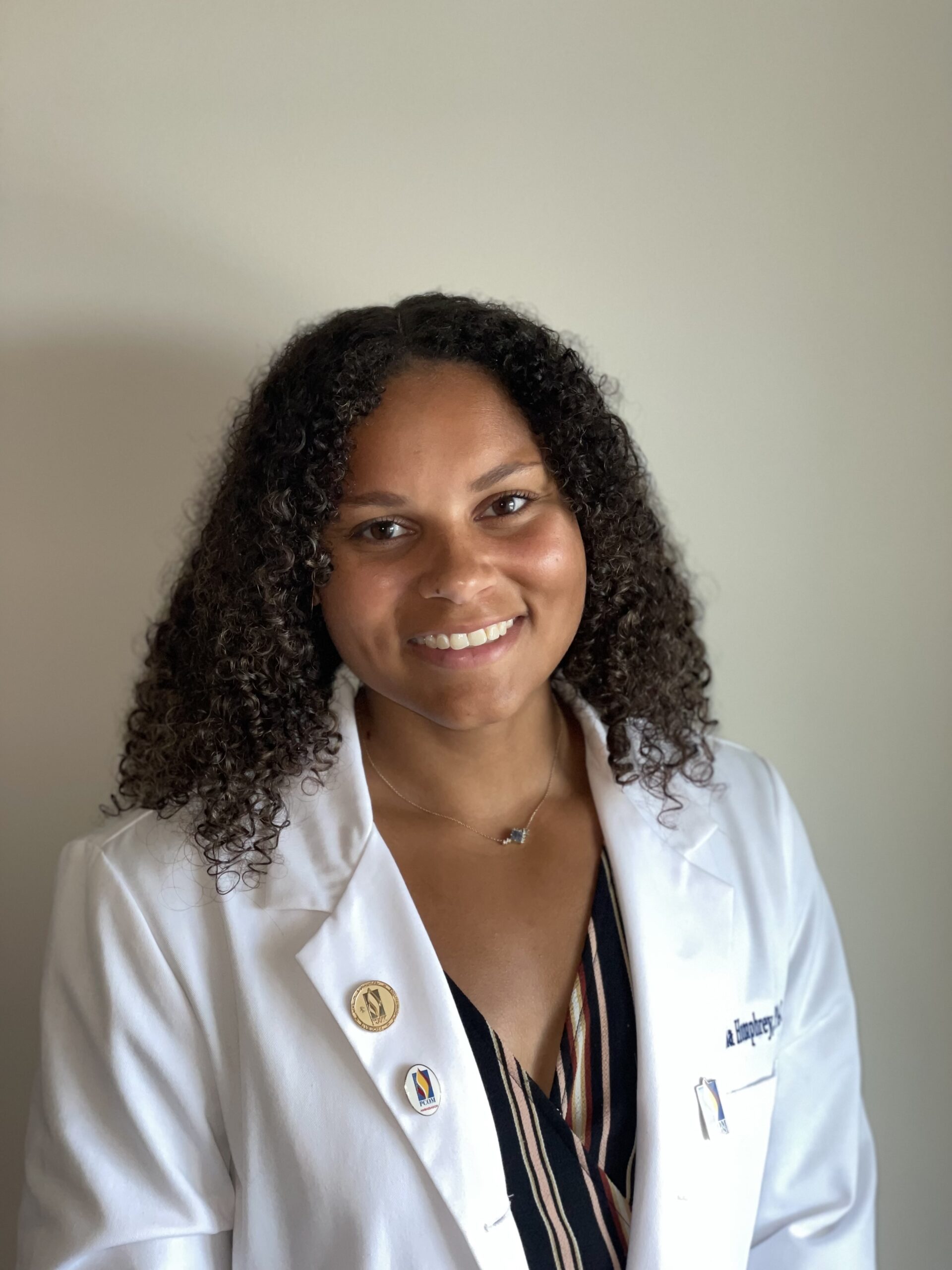NONLINEAR CAREER PATH: Interview with Michalia Humphrey, PA-C

Here at The PA Blueprint, we support those that choose unorthodox, non-linear career paths…from sabbaticals to non-clinical jobs to side hustles. After all, working 9-5 for 25 years while pushing off life outside of the clinic sounds rather terrible, doesn’t it?? We always try to practice what we teach, but love to hear when others are blazing their own career paths also. Our blog interview guest Michalia Humphrey, PA-C, is still early in her career, but already doing just that, so we wanted to highlight how she exemplifies what we promote with career design. We hope that you find her story as relatable and inspiring as we did, so please enjoy this interview with Michalia.
PABP:
We hadn’t met until you commented on my LinkedIn post about the endless possibilities for a 25 year old PA graduate, but your comments stopped me in my tracks and I knew that I wanted to hear more about your story. Similar to your comments, can you tell us what you’ve done with your PA career since graduating?
MICHALIA:
I graduated from Philadelphia College of Osteopathic Medicine (POCM) in 2020, one month before my 25th birthday. As many will remember, in March of 2020, just four months before our graduation, my class was pulled from rotations due to the pandemic. While we were able to complete our coursework within a similar timeline and sit for the PANCE, the job market was not ideal for quick resume responses and interviews. The pandemic and the decision to move back to my hometown after graduation are what led me into my first PA role, working in Obesity Medicine. In the past year, Ozempic and Wegovy have become household names, but I had the opportunity to learn about these medications and this speciality before all of the headlines. I never planned to work in Obesity Medicine, but as my knowledge broadened and I worked with patients, my passion for the specialty grew.
After 2 years at the practice, I decided that I wanted the opportunity to expand my scope and help more patients. I transitioned into a role in Family Medicine, working with a school district and providing the employees and their families with acute and chronic medical care. This was a part-time position which led me to pick up additional work centered around outpatient addiction medicine. I believe the past three years of my career are a strong representation of why I chose the PA track. I have the opportunity to do what I love, caring for others, while still having the flexibility to change how I practice and continue my growth as a clinician.
PABP:
You said that you paid down ⅓ of your student loan debt within your first year of employment…that’s incredible! Can you tell us more details about how you managed to accomplish this?
MICHALIA:
I was lucky enough to graduate from my undergraduate college with minimal debt due to scholarships, grants, and part-time jobs. I knew PA school was going to be a large financial commitment, however, I believe the debt was worth it to become a Physician Assistant. My debt payoff journey began while still at PCOM. First, since there is not an official cap on Grad Plus Loan funds, I made sure to calculate my monthly expenses in order to take out a more reasonable loan amount, based on my needs rather than maxing out the loan each year. Next, I learned that at the end of a semester, if you have unutilized funds remaining from your disbursement, you can return that loan money. Upon writing a check to your financial aid office, they will remove the principal amount returned, along with any interest accrued on that amount. I did this for two semesters, which helped me decrease my final Grad Plus Loan balance.
After graduating I moved back in with my family, which significantly decreased my expenses. Then, when I received my first offer letter, I made sure to negotiate for a gross salary of six figures, as our facility always emphasized the importance of getting paid our worth. The combination of having a high income, low expenses, and interest paused during the pandemic, allowed me to pay off $61,000 in the first 14-months after graduating. Since then, I’ve slowed down and taken advantage of other opportunities rather than throwing all my extra funds at my debt. Even with slowing down, I am proud to report I have officially paid off ½ of my original total student loan balance.
PABP:
In order to have more time and flexibility, you took two part-time positions and said that you also had health insurance…how’d you pull that off?
MICHALIA:
The office I started my career at was a small family owned practice, which gave me significant autonomy, however the combination of being a new graduate and wanting to make a good impression, often led me to work over the 40 hours I was scheduled each week. I was the first licensed medical provider, outside of the owners, and had a knack for picking up new skills. As time went on, I realized while I loved what I was doing, personally, I was becoming unhappy. The truth is, from the moment I realized I wanted to be a PA, my senior year of high school, accomplishing that goal became my sole focus; and that prioritization ran right into the beginning of my career. I started to realize that I wanted the opportunity to do more than just work.
The part-time position I accepted was with a company who contracts with employers to provide no-cost clinics for their employees to utilize. My clinic only had a contract to be open 20 hours a week, but due to those hours being spread across four days, the role was more difficult to fill and the company had utilized locums for a year leading up to my acceptance of the role. Recognizing I had negotiating power in this situation, I explained that I couldn’t leave my current position if I didn’t have healthcare benefits, PTO, or a CME budget. I also explain that if they couldn’t provide a salary that covered my current expenses I wouldn’t be able to accept the role. Upon signing my contract I received all of these benefits, along with a salary that was a higher rate for hours worked compared to my first PA role.
PABP:
After taking your sabbatical in Asia, did you find any trouble landing a job? Was your work-gap a problem in the eyes of potential employers?
MICHALIA:
Having a work gap was one of my biggest financial concerns when deciding to take a month and travel Southeast Asia. The main reason for planning our adventure in December was because I knew in January 2024, we would be relocating due to my spouse’s career. I was already planning to resign from my position, since I would be changing states, so this made for the perfect window of opportunity. One of the part-time positions I mentioned earlier was with a telemedicine company as an independent contractor, which allowed me the opportunity to take December off and begin picking up shifts again in January. Although being an independent contractor doesn’t come with a benefits package, it does have some advantages. Additionally, when I returned, I contacted my previous employer to offer PRN help and was able to negotiate a remote role to provide care for patients who could be assessed and treated via telemedicine.
Two components I believe made this opportunity possible were that my position had not been filled and previous patients advocating for my return with their employer. The ability to develop rapport with patients was one of the reasons that I chose to practice outpatient, and I think it speaks volumes when patients desire to have you as part of their care team, despite the physical boundaries that limit me from practicing in the office. I plan to continue in these roles for the foreseeable future, as a wait for my new Virginia medical license to be approved.
PABP:
You’ve obviously chosen a non-traditional career path so far, which we praise you for! This is setting a great example for your peers, and exemplifies what The PA Blueprint educates and empowers other clinicians to consider for themselves! But back to you: care to share any other non-traditional career goals with us???
MICHALIA:
To be honest, up until 2023 I never expected to have the opportunity for a non-traditional career path in medicine. After leaving my first job, my ultimate career goal became to avoid burnout and always provide compassionate and empathetic care to my patients. Along with that goal, I plan to continue pursuing flexible roles that provide work/life balance. Due to my partner’s military service I can anticipate a move every 2-3 years, which provides me the perfect opportunity to embrace change and career growth. Aside from practicing medicine, I have a TikTok account, @thatpa_mic, that has allowed me to educate millions of people about obesity medicine and medication based weight loss. I do my best to take medical information and present it in an understandable way that allows patients’ to use it to advocate for themselves. Ultimately, I hope more clinicians realize that taking time for yourself to refocus or make a change, will lead to less burnout and more compassionate care for our future patients!
We’d like to say “Thank you” to Michalia for sharing her inspiring, non-linear career experiences with us and our audience!
DISCLAIMERS: 1) The views expressed here are our own and do not necessarily represent the views of our employers. 2) We don’t know what we don’t know. Feel free to message us if you don’t agree with something that you read. 3) We do have affiliate agreements with companies. By clicking on our links and making any purchases, we may earn some money on those generated sales.
#thebetterwaytopa #thepablueprint #physicianassistant #physicianassistants #physicianassociates #physicianassistantstudent #physicianassistantlife #physicianassistantstudies #pastudent #palife #pasdothat #paschoollife #pastudentlife #burnout #paschool #pasofinstagram #medicine #career #healthcare #success #resilient #doctor #nurse #nursepractitioner #growth #covid

